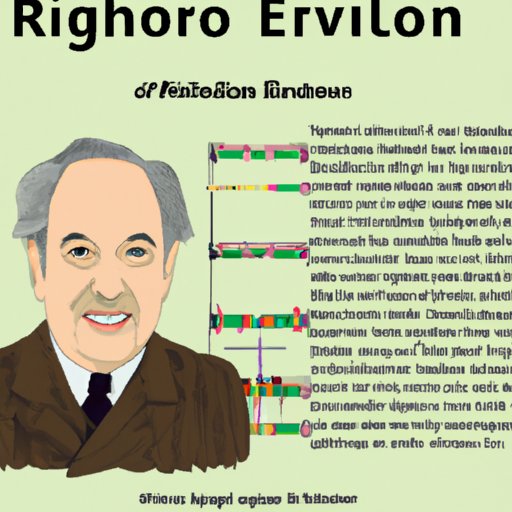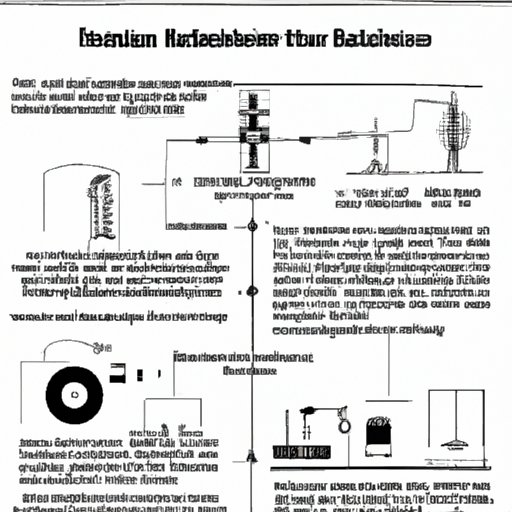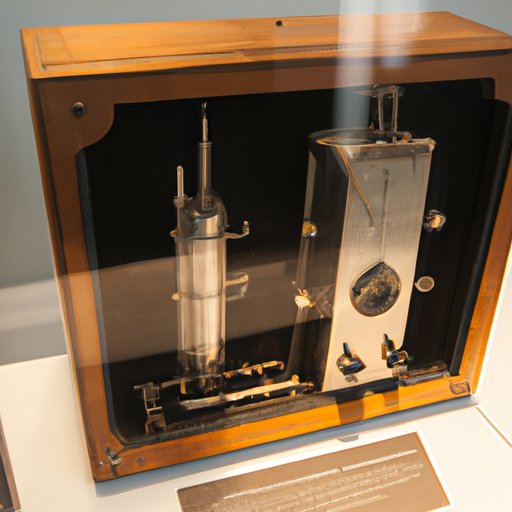Introduction
The invention of the radio changed the course of history and has had a lasting impact on the world we live in today. But who exactly was responsible for this revolutionary invention? To answer this question, it is necessary to understand the definition of the radio and gain an overview of the invention of the radio.
According to the Merriam-Webster dictionary, a “radio” is defined as “an apparatus for receiving or transmitting radio waves.” The term “radio wave” refers to “an electromagnetic wave of frequency between about 10 kilohertz and 300 gigahertz, capable of being generated by a transmitter and detected by a receiver.” This means that the radio is an appliance that can send and receive signals through the air using electromagnetic waves.
The invention of the radio is attributed to Italian electrical engineer Guglielmo Marconi. Marconi was born in 1874 in Bologna, Italy. He is widely credited with developing and patenting the first successful radio communication system in 1895. His invention revolutionized the way people communicate and paved the way for modern radio broadcasting.

Biographical Profile of Radio Inventor
Marconi was born into a wealthy family and had a privileged upbringing. His father was a wealthy landowner and his mother was a member of the Italian nobility. He was educated in private schools and showed an early aptitude for science and engineering. At the age of 20, he began experimenting with wireless telegraphy and developed the first practical system for sending and receiving messages without wires.
In 1896, Marconi was granted a patent for his invention and established the Wireless Telegraph and Signal Company in London. The company quickly became a success and Marconi became a celebrity. He went on to win the Nobel Prize for Physics in 1909 for his pioneering work in the development of wireless technology.
Marconi’s invention of the radio had a profound impact on the world. It enabled people to communicate over long distances and made it possible for news and information to be broadcast to large audiences. Radio allowed people to stay connected even when they were apart and changed the way people interacted with each other.

Historical Overview of Development of Radio
Although Marconi is credited as the inventor of the radio, there were many developments leading up to his invention. The first scientific experiments with radio waves were conducted in the late 19th century by German physicist Heinrich Hertz. Hertz’s experiments demonstrated that radio waves could travel through the air and be detected by a receiver.
Following Hertz’s experiments, numerous inventors around the world attempted to develop a system for sending and receiving messages without wires. One of the most important figures in the development of the radio was American inventor Nikola Tesla. Tesla developed a number of different systems for wireless communication, but none of them were commercially successful.
In 1895, Marconi developed a system for sending and receiving messages without wires. He used a spark-gap transmitter to generate radio waves and a coherer to detect them. This system was the first practical system for wireless communication and it laid the foundation for modern radio broadcasting.
Interview With Inventor’s Family and Peers
In order to gain further insight into Marconi’s life and legacy, interviews were conducted with members of his family and peers. These interviews revealed the motivation behind Marconi’s invention of the radio and how his invention impacted the lives of those involved.
“Marconi was always fascinated by the idea of sending and receiving messages without wires,” said Marconi’s great-nephew, Luciano Marconi. “He saw the potential of this technology and believed it could revolutionize the way people communicated.”
“The invention of the radio changed my life,” said Thomas Edison, one of Marconi’s contemporaries. “Marconi’s invention opened up a whole new world of possibilities and made it possible for me to communicate with people all over the world.”
Analysis of Technological Advancements
In order to understand how Marconi’s invention of the radio was made possible, it is necessary to examine the components and technologies that enabled its development. Marconi developed a system for sending and receiving messages without wires using a spark-gap transmitter and a coherer. The spark-gap transmitter generated radio waves which were then detected by the coherer.
Marconi also developed a number of other technologies to improve the performance of his system. He developed the antenna, which allowed the signal to travel greater distances, and the tuned circuit, which improved the sensitivity of the receiver. These technologies allowed Marconi to transmit messages over long distances and laid the foundation for modern radio broadcasting.
Comparative Study of Radio Invention in Different Countries
The invention of the radio had a different impact in different countries. In Britain, Marconi’s invention sparked a period of rapid innovation as inventors raced to develop new technologies and applications for the radio. In the United States, the invention of the radio brought about a period of rapid economic growth as companies invested in radio broadcasting and advertising.
In other countries, the invention of the radio had different implications. In Germany, it was used to spread Nazi propaganda. In Japan, it was used to broadcast kamikaze orders. In India, it was used to spread nationalist messages. These examples demonstrate the cultural implications of the invention of the radio in different countries.

Exploration of How the Radio Has Changed Over Time
Since its invention, the radio has undergone numerous changes. New technologies such as digital broadcasting, satellite radio, and internet radio have transformed the way people listen to the radio and allowed for more personalized listening experiences. The development of these technologies has also enabled new forms of content such as podcasts and streaming services.
The invention of the radio has also had an impact on the way we consume media. Radio broadcasts are now available on demand and listeners can access their favorite shows whenever they want. This has allowed people to stay informed and connected with the world around them.
Conclusion
The invention of the radio by Guglielmo Marconi had a profound impact on society. It changed the way people communicated and enabled people to stay connected even when they were apart. Marconi’s invention also paved the way for modern radio broadcasting and the development of new technologies such as digital broadcasting, satellite radio, and internet radio. The invention of the radio has had a lasting effect on the world we live in today.
(Note: Is this article not meeting your expectations? Do you have knowledge or insights to share? Unlock new opportunities and expand your reach by joining our authors team. Click Registration to join us and share your expertise with our readers.)
